When Opposites Attract – INFPs and Compatibility with ENTJs and ESTJs
Opposites often attract, there’s no doubt about it! We are naturally attracted to people with strengths and abilities that balance out our weaknesses. I see this with the relationships I come across in the Myers-Briggs® world as well. I’ve talked to probably hundreds of INFJs in relationships with ESTPs or ISTPs and numerous INFPs with ENTJs or ESTJs. That’s what brings me to this post. I’ve received a request from an INFP to write a post about the INFP/ENTJ or ESTJ relationships. These types are true opposites in many ways; one leads with thinking and one leads with feeling. One is extroverted, one is introverted. You’d think they wouldn’t be very compatible just by looking at the letters in their types, but the truth is they often end up in relationships together.
Not sure what your personality type is? Take our new personality questionnaire here. Or you can take the official MBTI® here.
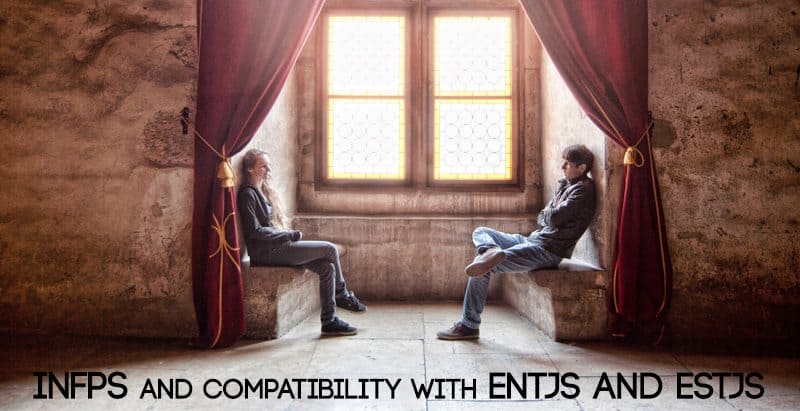
Table of contents
- Why Do Fi-Dominant Types End Up With Te-Dominant Types
- The Joys of the INFP/ENTJ Relationship:
- The Joys of the INFP/ESTJ Relationship:
- The Challenges of the INFP/ENTJ or ESTJ Relationship:
- Dominant Thinking with Dominant Feeling
- How to resolve this problem (for ETJs):
- How to resolve this problem (for INFPs):
- Different Values
- How to resolve this problem:
- Different Energy Needs
- Different Outward Decision-Making Styles
- The Sensing/Intuitive Difference in ESTJs and INFPs
- How to resolve this problem:
- What Do You Think?
Estimated reading time: 17 minutes
Why Do Fi-Dominant Types End Up With Te-Dominant Types
There’s a natural chemistry between two types that share a different order of the same functions. For example, INFPs and ENTJs share the same dominant and inferior functions but reversed. The INFP is dominant in Introverted Feeling and inferior in Extraverted Thinking, while the ENTJ is dominant in Extraverted Thinking and inferior in Introverted Feeling. Each of us has a natural interest and desire to advance our tertiary and inferior functions, so when we are paired with someone who is strong in the area we are weak in, we are naturally intrigued by them. The ENTJ will be drawn to the INFPs warmth and authenticity, and the INFP will be drawn to the ENTJs determination and intellectual prowess.
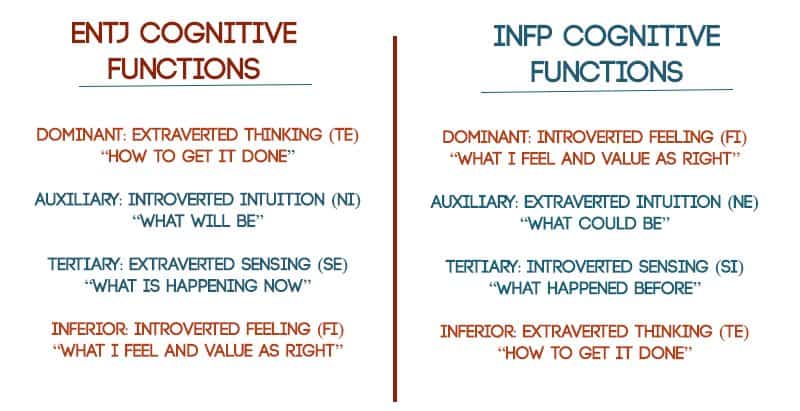
ESTJs and INFPs would seem like complete opposites at first glance. After all, they have no letters in common. Surprisingly, though, these two types tend to wind up in relationships a lot! When you look at their cognitive functions it’s not hard to see why. ESTJs and INFPs share the exact same four cognitive functions, but they are in a completely reversed order. You can see this in the graphic below:
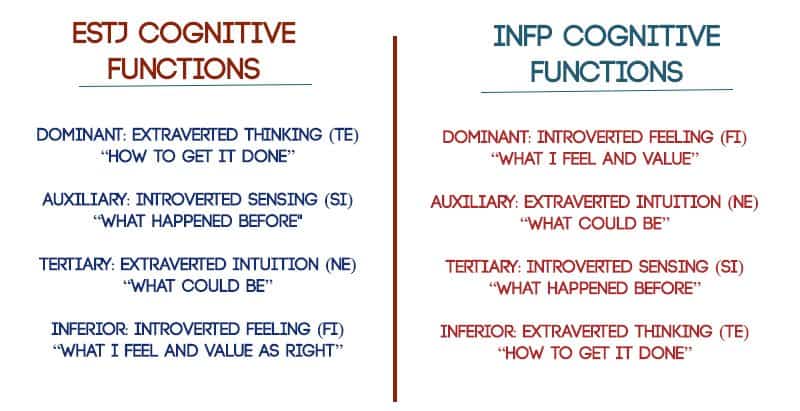
The Joys of the INFP/ENTJ Relationship:

INFPs and ENTJs share one common preference that makes communication lively from the beginning: Intuition. They both trust and perceive what they take in through patterns, impressions, and abstract conceptual ideas. They also are stimulated by theoretical conversation and talking about what things mean, and what could be in the future. They both are led by their inspirations; although the ENTJ is more single-minded in his focus (through Ni) and the INFP often has many inspirations (through Ne).
The things which make these two types different are also a source of interest and fascination. The INFP is often attracted to the ENTJs visionary, take-charge persona. The ENTJ is driven and focused on achieving their goals, and this single-minded determination and the efficiency that goes along with it is attractive and intriguing to the INFP. The INFP, in contrast, is driven by their values, morals, and concern for humanity. They are dreamers and idealists, who spend a lot of time in their minds (or in their books) considering how they can make a difference for humanity, or simply enjoying the imaginative process of their endless intuitive thoughts. The ENTJ is drawn to the INFP’s gentle nature, their amazing listening skills, and their creativity and numerous insights.
ENTJs and INFPs can get into long, drawn-out discussions about the purpose of life, the nature of the universe, or any other number of global concerns. Both ENTJs and INFPs eschew traditions and love to consider new and innovative ideas. The ENTJ can take the INFPs creative ideas and insights and give them a focused, strategic plan towards making it a reality. The INFP, in turn, can inspire the ENTJ to see many different ways of looking at the world and can inspire them with new angles they might never have thought of before.
INFPs are often attracted to the ENTJs intensity, ambition, confidence, and leadership capabilities. The driven nature and immense energy of the ENTJs vision is captivating to them and their ability to bring plans to reality makes them feel like they, too, can achieve their dreams.
ENTJs are often attracted to the INFPs warmth, sincerity, creativity, and insight into people. They find comfort in the INFP’s selfless nature and are amazed by their incredible listening skills. INFPs can help the ENTJ to calm down and get in touch with their vision and find new, creative ways to expand on that vision. ENTJs are focused on doing (Te) first, and envisioning (Ni) second, and the INFP can help them to see the vision alongside their task-oriented nature, giving them a more holistic focus.
ENTJs can help INFPs to get in touch with their inferior function, Extraverted Thinking, and become bolder and focused in their energies. They can help the INFPs ideas to spring forth into life, and not just simmer as ideas for eternity. INFPs can help the ENTJ to get in touch with their Introverted Feeling, and become more conscious of their values and own personal morals. They can help the ENTJ to understand the people part of the equation better, which can help them in interpersonal relationships when they start new careers or entrepreneurial endeavors.
The Joys of the INFP/ESTJ Relationship:

ESTJs and INFPs are often drawn to each other because they are so different from each other. The INFP is intrigued by the ESTJs practical, outspoken nature and the ESTJ is fascinated by the INFPS gentle, insightful demeanor. While these two types share zero preferences, they share all the same cognitive functions so they will simultaneously feel like opposites that “get” each other in a way that is baffling to them both.
ESTJs have strong personalities and exude confidence and a can-do attitude that can be a solace to the INFP. INFPs, who are so filled with ideas, yet have a harder time bringing them to fruition, can find a true partner and helpmate in the ESTJ. They also appreciate the ESTJs dependable nature, their down-to-earth mindset, and their ability to balance the INFP’s imagination with their own practical worldview.
INFPs have insightful, compassionate personalities. They are warm, gentle, and inquisitive and have an endless desire to improve the human condition. ESTJs find the authentic kindness of the INFP to be a comfort and encouragement. They are overwhelmed by the INFPs ability to care for them and provide a listening ear whenever it’s needed. When these two types are open-minded and mature, they can balance each other out in a way that is mind-blowing. They become two opposite sides of the same coin and can be unstoppable in their abilities to achieve goals and open each other’s eyes to new ideas and perspectives.
ESTJs can help their INFP partners to become more outspoken and take-charge. They can also help them to find practical ways to make their visions a reality. Because ESTJs share Introverted Sensing with INFPs, the two types can enjoy reminiscing about past experiences and creating memories to look back on in future years. INFPs often say that their ESTJ partners help them to become more organized, focused, and objective.
INFPs can help their ESTJ partners to be more self-aware and focused on the human aspect of their decisions. Where ESTJs can struggle with seeing everything in black and white, INFPs can reveal numerous shades and varieties that ESTJs may have never considered. They can help them to understand the complexity of the human spirit. This, in turn, helps the ESTJ to become more compassionate and understanding.
The Challenges of the INFP/ENTJ or ESTJ Relationship:
Dominant Thinking with Dominant Feeling

While there is natural chemistry and intensity to these relationships, there can also be fiery disagreements and conflicts. The biggest conflict that these two types face stems from their Thinking/Feeling difference. ENTJs and ESTJs are extremely direct, logical, and objective. They don’t like to beat around the bush or sugarcoat anything, and they can be extremely tactless in their delivery. Because ETJs have inferior Introverted Feeling, and absolutely no Extraverted Feeling (Fe) in their primary function stack, they can be completely unaware of the effect their words have on others. INFPs, in contrast, are very careful with their words and are extremely conscious of their effect. They are very sensitive and are prone to taking things personally, so the brash, direct nature of the ETJ can be unsettling to the INFP and cause them a great amount of distress. The ETJ can also feel that the INFP is overly sensitive and struggle with knowing how to communicate in a way that won’t offend.
When conflicts of the Thinking/Feeling nature arise, the two types react differently as well. The ETJ is likely to directly face the problem and try to find a resolution quickly. The INFP, in contrast, tends to withdraw when their feelings are hurt and try to avoid discussing what’s bothering them. They need time alone to work through their feelings and come to terms with their hurts. This can frustrate the ETJ who wants a rapid resolution and may struggle with patience waiting for the INFP to be ready to work things out.
The INFP, in turn, is somebody who will want to discuss the more emotional, value-oriented aspects of life, and this may not interest the ETJ and make them uncomfortable. We are all usually kind of uncomfortable trying to access our inferior function, and since the ETJs inferior function is feeling, they can feel out of their element trying to discuss the emotional matters of life. This can lead to the INFP feeling bored and restless over time and that they have nobody to truly connect with.
The ETJ is very focused on efficiency and has a knack for getting things done quickly and logically. The INFP has a more difficult time thinking objectively and struggles with taking things personally. Because the INFP’s inferior function is thinking, they struggle with finding the most logical decision or maintaining objectivity. The ETJ may feel like their impersonal analysis and focus on the facts is not appreciated by the INFP and can feel bewildered about how to move forward when they are worried about the INFP’s feelings, which can be very confusing to them.
How to resolve this problem (for ETJs):
– Give the INFP your full attention. Work at not interrupting, finishing their sentences, or rushing them along.
– Point out areas of harmony and agreement before mentioning disagreements and differences.
– When the INFP comes to you with a problem, don’t rush to fix it. Try to listen fully before suggesting a solution, and ask them if they want any help coming up with a solution first before even offering.
– Be careful not to speak harshly of other people, and express your feelings gently.
– Frequently let your partner know how much you care about them.
– Be sure to praise the INFP for their unique gifts; creativity, gentleness, warmth, whatever is unique to them. The INFP will know that you are very different from them, and some ETJs can make them feel inadequate by trying to push them to be more like themselves. Make sure they know that you appreciate them for who they are without alterations.
How to resolve this problem (for INFPs):
– Try not to take things personally when the ETJ is being tactless or says things very directly. It’s their natural strength to point out what they see as flaws. Remember that they can truly admire and respect people they critique or debate with, and it’s not a sign of ill will.
-Be up-front about your needs, including the need to be listened to without interruptions. ETJs like directness, and won’t be offended when you say exactly what you mean.
– Try to remain calm when expressing your feelings. This may be difficult, but the ETJ will understand what you have to say better and will often take it more seriously if you stay as calm as possible.
– If the ETJ says something that offends you, try to let them know quickly. If you need time to process things, let them know this as well. Try not to disappear without any warning as this will confuse and frustrate them.
– Be sure to praise the ETJ for their strengths. Because you are both so different, it’s important to make sure your partner doesn’t feel that they are inadequate just by being who they are. Praise their boldness, their ability to form logical conclusions quickly, their leadership skills, etc,.
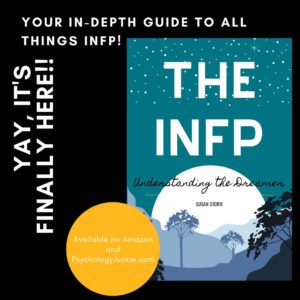
Different Values
ETJs are often very focused on being successful and constantly increasing their competence. They are take-charge people who believe in making the most of life and getting to the top. INFPs, in contrast, are often focused on personal expression and forming meaningful connections, whether it’s through creative works or working with people one-on-one. INFPs can sometimes feel that ETJs focus too much on their careers and professional lives, while ETJs can feel that INFPs are too idealistic and controlled by their changing feelings.
How to resolve this problem:
– Respect your partner’s goals in life, even if they are far different from your own. Respect their strengths and how they use them in their daily life. For ETJs it means admiring the INFPs talent for understanding the human condition and holding to their values no matter what. For INFPs it means admiring the ETJs talent for business, accomplishing goals, or taking on big projects. Obviously, there are numerous other unique abilities that your partner probably has that I’m not mentioning here because it will vary from person to person.
– Try to show an interest in each other’s projects and interests, even if they may not match your own. This is an important way to show them that you value their abilities and that you care.
Different Energy Needs
ETJs are invigorated by being around other people. They like to surround themselves with friends or co-workers on a regular basis to talk things over or work on a project. They like to be active in many ways, and they also like delegating. This can seem controlling to the INFP, who needs more alone time and space to process and reflect. If they spend too much time socializing they will feel drained, whereas if the ETJ spends too much time alone they will feel drained.
How to resolve this problem:
– Respect each other’s differing needs. ETJs need to know that socializing will gradually drain the INFP, and the INFP needs to know that too much solitude will drain the ETJ. Give each other space and permission to meet their own energy needs without judgment.
– ETJs try not to get too busy delegating to the INFP. They can get irritated with this and feel like they are being “bossed around” too much. Ask them if they’re available and interested before giving them something to do.
Different Outward Decision-Making Styles
ETJs like to make decisions quickly and move from one project to the next. They don’t like to mull over things for very long and strive for efficiency in all their actions. INFPs, in contrast, like to take their time before making a decision. They want to consider all the different angles and let the idea simmer for a while before moving forward. They can feel overwhelmed when they are being pushed for a decision or an answer before they are ready. The ETJ can feel frustrated when they are left hanging and feel a need for closure on a decision. This can be a great source of frustration for both of them.
How to resolve this problem:
– This is an area where both partners need to find some middle ground. INFPs can try to be a little more decisive and direct, getting some time to think things over, but not an excessive amount. ETJs, in turn, can try to give them more time to think things through and reflect on decisions. This only works if both partners are trying to make an effort; if only one partner is, then this can breed resentment and a feeling of being pushed into an uncomfortable place. It’s also not fair.
The Sensing/Intuitive Difference in ESTJs and INFPs

This won’t be an issue for ENTJs with INFPs, but it can be for ESTJs with INFPs. ESTJs like to focus very much on the practical matters of daily life. They are focused on current realities and when they think about the future, it is usually because they are coming up with practical plans. They speak in a literal way and focus on what is real, what has happened before, and what is the tried and true technique. INFPs are more focused on possibilities for the future and love to discuss theoretical, abstract ideas. ESTJs are very matter-of-fact and can get frustrated with the complexity and other-worldly nature of the INFPs interests and imaginative ideas. They can both reach a conversational roadblock when the ESTJ only wants to focus on sensing topics and the INFP only wants to focus on intuitive/theoretical “what if” topics.
This isn’t to say that ESTJs can never enjoy theoretical discussions or that INFPs are never practical. It only means that they prefer on a day-to-day basis to immerse themselves in either the sensing or intuitive world.
How to resolve this problem:
– Both partners should try to truly listen to each other and be aware of their different needs. This is, again, an area where they need to find some middle ground. The ESTJ can admire and appreciate the INFPs imaginative mind and complex ideas and insights into the future. The INFP can admire the ESTJs ability to take care of present realities and to be down-to-earth and practical. Remember that it is probably some of your differences that attracted you to each other in the first place.
– ESTJs can sometimes find the intuitive forecasts and insights of the INFP hard to trust. Because ESTJs like to have all their ideas planted firmly in “reality” and what they can trust through personal experience, they may find intuitive insights difficult to take seriously. It’s important for the ESTJ to remember that this intuitive insight is the INFPs skill and to try to trust it without seeming condescending or dismissing it because it doesn’t match up with their sensing way of viewing the world.
– In contrast, the INFP needs to work to admire what the ESTJ has gathered from personal experience and their memory for facts and details. This is the ESTJs strength, and so you can trust that they are often going to be very accurate with their ability to remember how things have worked before and how to take care of practical daily needs.
– For the INFP, when you need help gathering data before making a decision, turn to the ESTJ because this is their strength. For the ESTJ, when you need help focusing on the “big picture” or dealing with the feelings of others, ask the INFP for help. This is their strength.
What Do You Think?
Was this post helpful? Do you have any of your own experiences to share? Let me know in the comments!
Find out more about your personality type in our eBooks, Discovering You: Unlocking the Power of Personality Type, The INFJ – Understanding the Mystic, and The INFP – Understanding the Dreamer. You can also connect with me via Facebook, Instagram, or Twitter!
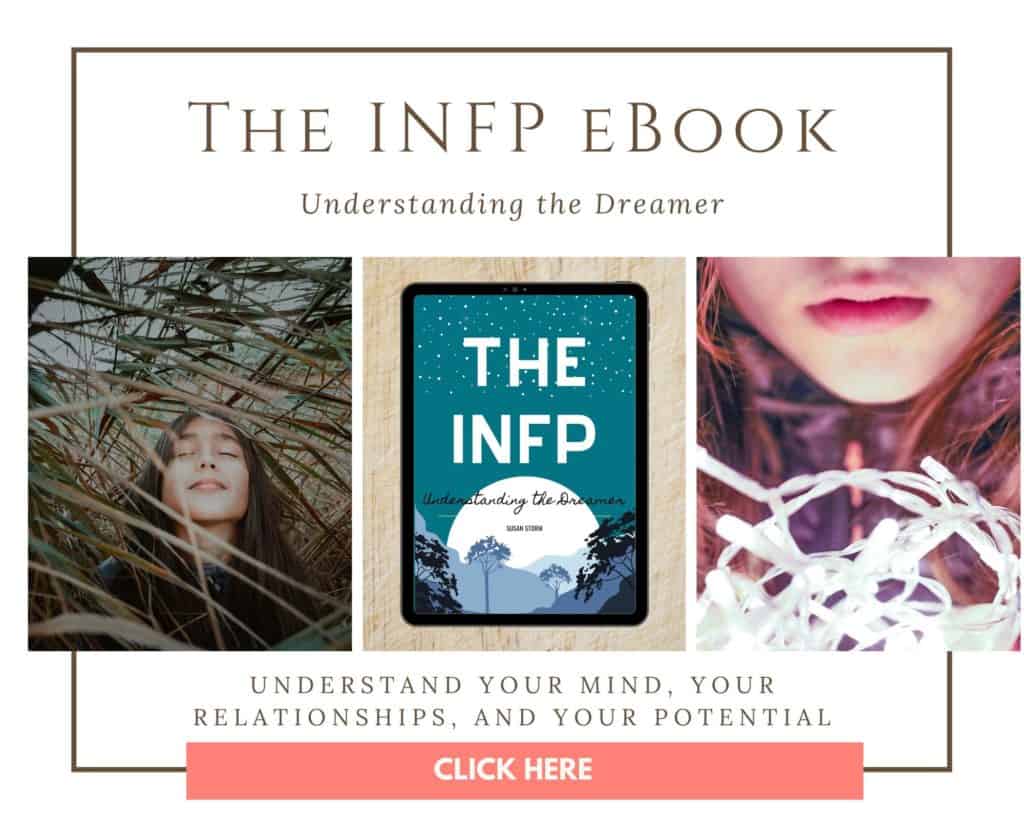



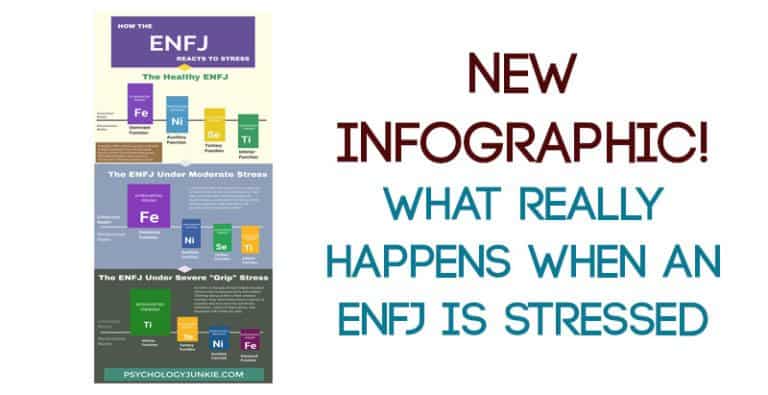
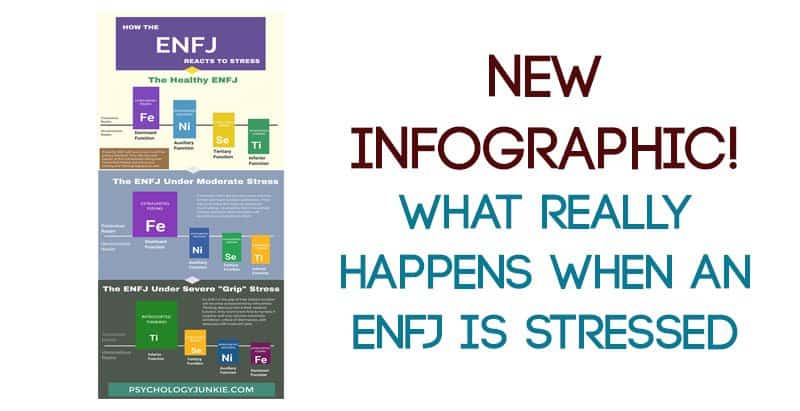




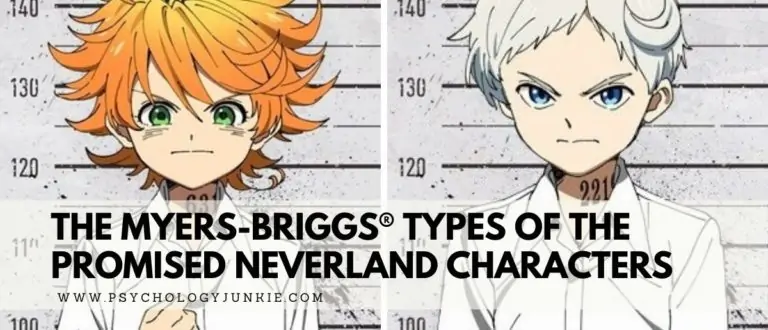
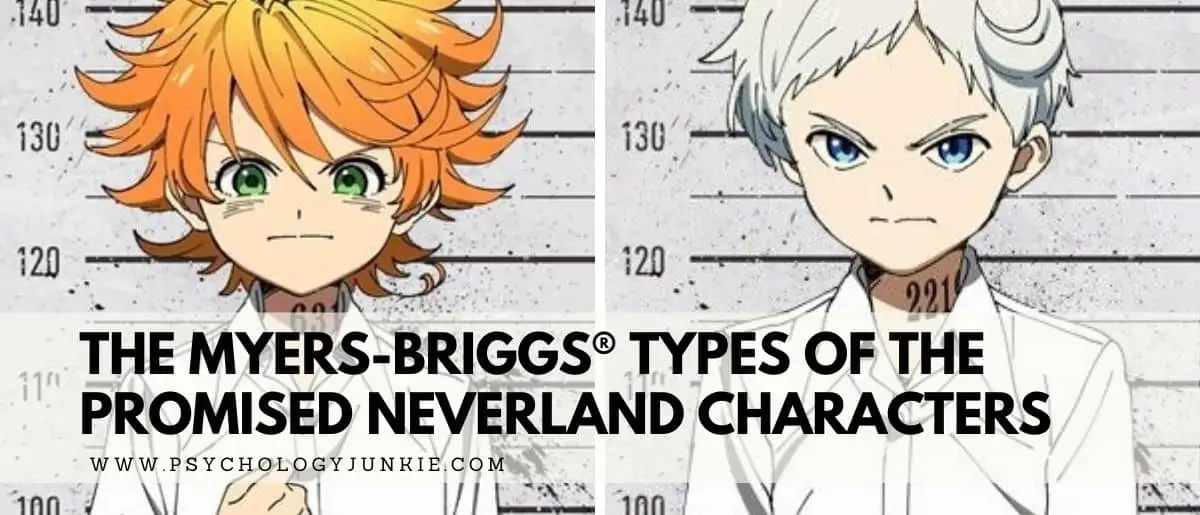




Please do ENFPxINTJ next.
Or Entp/intj please?
I shared this post with my good INFP friend (I am an ENTJ). We both agree that this analysis of INFP/ENTJ friendship is spot on. However, my INFP friend felt that there was a missing piece and she told me it was okay to share the following thought:
“The author writes about how INFPs are attracted to ENTJ determination, but one word she doesn’t use, that I think defines you, is truth. Or honesty. Your total commitment to honesty is why you are so completely trustworthy to someone like me. I think both? I know that no matter what, you will work to be honest with yourself and with me. For someone that values authenticity above everything, that means you are safe and dependable without either of us having to be infallible.”
I think her point is a good one. INFPs are deeply committed to authenticity and ENTJs are (in my opinion) committed to speaking their truth — which is a type of authenticity.
I do often time see many INFPs online where they speak of having married an ESTJ before they knew about Meyers Briggs, and statistically speaking INFPs are the second most likely type (right under INFJs) to experience marital dissatisfaction. I’m not saying they are a bad fit, I’ve just become very wary of the INFP & ENT posts, learning what I have and seeing the ever occurring pattern of them marrying ENTs.
I am an INFP, married to a ESTJ (before i knew about the Myers Briggs). I am also interested about the chemistry and purpose of the attraction of both types. I feel I’ve developed a lot as a person because I am constantly out of my comfort zone. I am wondering if this fit is working out in the long-term because I can get very stressful…then I wonder if I should separate from him or if I need to change as a person. End the end I change, then the entire relationship changes instantly .. this goes well some time until the circle starts again. Does someone has similar or different experiences?
Hi Miriam! Thank you for commenting and for reading the article. It is definitely a lot of work long-term to be in a relationship with someone who is your opposite. I think initially there is a lot of attraction but further on down the road the differences can start to be a struggle. Could you show your ESTJ husband this article perhaps? Maybe if he could understand your personality type better you both could reach a middle ground to work with and relate to each other better. Sometimes it takes a lot of work and practice to try to meet in the middle as partners. I’m an INFJ married to an ISTP and sometimes we connect really well and then go through stages where it feels like we’re speaking different languages. But as long as you both are willing to learn about each other and try your hardest to understand and meet each other’s needs (not just you, but your husband also) I think there is hope for an amazing relationship. It sounds like you are putting a lot of work into the relationship and really want it to work out for the best. I hope that things will become easier!
Read this to my ESTJ husband of 22 years. I’m INFP. We both thought it pretty accurate. Very good
Read this with my ESTJ husband of 22 years. I’m INFP. We both thought it very accurate. Very good!
I’m so glad this was helpful! Thanks for reading 🙂
Yes! Again thank you Susan for this article. After 25 yrs of frustration, my ESTJ husband read a bit about my INFP personality on your website. Totally different marriage now! Only wish we had seen this much earlier in our relationship. I have truly appreciated the info for my ISTJ teen daughter as well. Another STJ in the home can be daunting, but she does trust my insights which is invaluable. I do have to occasionally remind her not to try and parent me though since she’s so much more “mature” than her mother. haha
Oh wow! I am so glad this helped! I can imagine being an INFP in a family with two SJs would have its challenges (and blessings of course!) I am in a house full of sensors myself and sometimes struggle with feeling like I’m “the crazy one”. Anyway, I’m so glad this helped. Made my day!
I am an INFP and my dad is an ENTJ. My husband, on the other hand, is an ENFJ. He and I have very few problems communicating with and understanding each other.
But my dad and I struggle more to understand each other. He loves to socialize and network and assumes that I do too, no matter how many times I tell him that certain social actIvities make me uncomfortable, or that I would like advance notice if he is going to invite extra people to a dinner.
He is focused on success, income, and social status. I secretly roll my eyes when he talks about certain luxury activities. He will talk about how great it is to have someone carry his golf clubs, etc. And I hate having people do things for me that I can easily do myself. It makes me anxious to worry about tipping and how to act.
Sometimes when we meet he is fully attentive and asks me questions about my life and truly listens. Other times he is barely listening to what I have to say and doesn’t seem to know (or care?) that I can tell that he isn’t listening.
This article has helped me understand my dad a little more. Thank you!
Honey, I am pretty sure that your dad is an ESTJ, and not an ENTJ. I am confident I speak for all ENTJz when I say bragging about someone carrying our golf club is just stupid and points to a lack of security in oneself. One thing I know about ESTJ especially the insecure types is that’s they are very fond of bragging and boasting about futile things, “oh, I got muscles, I can bench press 50lbs” yea, nobody cares asshole. The reason why INFPz register as being some with the lowest marital satisfaction is because they are married to ESTJz, INFPz and ESTJz are total opposites and that’s not a good thing. remember ENTJz are extremely rare making up only 4% of the population verses a staggering 13% population of ESTJz. Listen, there’s a reason why INFP/ENTJ relationships are an ideal matchup, yes ENTJz are dominant extraverted thinkers, but thanks to our Ni we are very in tune with our INFP counterpart. In my experience my interaction with INFPz are almost always a soulmate experience.
I apologize for the errors, English is not my first language (*crying thinking of the mess made writing this*).
INFP here! I’m in a relationship with an ENTJ, and… It’s hard! One of the most frustrating thing is that I’m constantly trying to understand more of myself and him to improve our relationship but I don’t see the same effort from him. Not that he doesn’t try to improve, on the contrary. But he has a completely different way than mine, and often I can’t see his efforts, really. For example, I’m overly excited with MBTI, but he doesn’t seem too interested in it, saying a test is only a test and other superficialities like that. Obviously is “only” a test! But is tremendously useful, god dammit! And interesting. It makes me incredibly sad to see other types not considering MBTI as they should.
Anyway, I have a feeling that is more hard for me than for him, maybe I’m wrong. It’s not rare for me to feel not understood, and that is so bad… Often I’m wary to confide in him because I know that he doesn’t listen, he only gives answers. I mean: if I tell him that I have a problem, that something is bothering me and I need someone listening to me he says yes with all the kindness of the world but then interrupts me while I talk and offer terrible insights that I DO NOT WANT. I just want to be listened to. I just want someone to hug me and to tell me that I’m beautiful inside and I can do it despite the difficulties.
Another very difficult thing is that he is very very often forceful in his opinions. And the worst part is that in a logical perspective he IS in the truth, being so intelligent as he is, but this results in him being intimidating and highly critical. And how I am supposed to speak with a person that is constantly trying to tear down the inadequacies of others? In the search of truth he forgets his heart, I’m sorry to say it. Once he said to me that it was important to him that I don’t believe in false things, and so he had taken at heart the mission of defending me by untruthful beliefs… and that I can understand in part, but it’s very difficult to me to accept, one because I’m not stupid and I do not need anyone babysitting me, two because to me it will be always more important be at peace than to be right (more or less).
Aside from that I could say that being with him is wonderful. He’s in love with my dreamy part and even if at times he risks hindering it I know he doesn’t mean it, and I love him for that. He has bring to my life more order, and he has the capacity to calm me down when I’m anxious. He is very beautiful, unstoppable, and that never cease to amaze me, really. He is amazing, full of resources and energy. HE IS INTELLIGENT. And that is a part that bring us together: we hate ignorance, and we are happy to be with someone who is interested in knowledge and in improving his/her life. That’s crucial.
And I want to break some prejudice that I often see floating around the idea of ENTJs: they are not incapable of showing affection! Mine ENTJ is really really sweet and sensitive. I’ve seen him crying many times, and he has not problems to communicate love. Indeed, he does not talk about himself very often or very easily, that’s certain. And sometimes he left me baffled for his practical and rational approach to everything, even his relationship with his parents. But the more I stay with him the more I became aware of the importance of being detached, at times. For me, living only by feeling everything, is an important lesson.
If I have to say in short what I think of being with an ENTJ I must say that is not simple, but is a challenge that make you a better person, if you are strong enough. And I say if because I see that INFPs risk of getting badly hurt if the ENTJ is not sensitive enough. In reality, I’m positive that for the INFP a relationship with an ENTJ can be very challenging, even dangerous on some level. I think it depends on how much the couple care one for another. If the love is strong enough it can work. We all need to be loved, and if we are able to take a step back and have a breath while thinking how much our relationship mean to us then I’m sure it could work.
Again, I am pretty sure your partner is an ESTJ. As soon as you said he has no interest in MBTI I knew.. I don’t know what it is, but the ESTJz I know don’t seem to care much for MBTI, maybe it’s because they don’t see a practical form of it in real life so it turns them off, I don’t know
There is implication that INFPs are drawn to ENTJs because of their “intellectual prowess” BECAUSE this is a weak spot for INFPs…. I find that not only untrue but insulting. INFPs are often intellectually inclined, may do quite well academically, be over-represented in high iq and gifted populations, etc. Quite frankly, not all of us are warm either. As an INFP, people say I am kind and patient, but my initial demenaor can be cool and seem stand-offish. What draws people to me is the offbeat, authentic thing, as well as being calm and laid-back. My clash with ESTJs is I may seem too indecisive for them (needing far more time for reflection prior to any decision), my lack of organizational abilities and resistance to structure, and my disinterest in maintaining status quo or conforming to arbitrary rules. I find them to be uptight prigs, frankly. I have interacted far less with ENTJs IRL, as they are way less common and we simply don’t cross paths much. The only problem I have seen thus far is they are the ones who get butthurt easily. They take many things as a challenge or threat wheh it’s simply an alternate perspective or even a joke. This happens with ESTJs sometimes too. I think me being INFP really triggers their sensitivities. It’s funny in that it’s the exact opposite of what these kinds of articles propose the problem will be….I offend them and find myself on eggshells, unable to freely express my thoughts or ideas, because they blow up if anyone disagrees with them.
Preach it! INFP married to an ESTJ. Even though my husband and I are equally intellectual, he is less polished and educated, even when approaching him in the most tactful way he gets defensive about academic, and must challenge me with nonsense. It is exhausting, thanks for Google solving a lot of arguments lol.
Yep totally agree. I’m living it.
ESTJ egos get hurt easily.
Yup. I’ve worked with or dated several ExTJs, and the common thread among many of them is that they act as though they want a yes man or a doormat. I’m aware that these people were likely unhealthy types; quite possibly some had Narcissistic Personality Disorder. But in all cases control was both a religion and a fetish for them. They saw me and thought, “she’s quiet and emotional, therefore she must be submissive and stupid, therefore I can make her dance like a puppet.” Joke was on them: INFPs don’t take kindly to others rejecting their authenticity and strong values.
My husband tests entj, I left him a year ago after I was completely useless after some post partum issues. The love languages he desires the most are word of affirmation and acts of service and then the other three…He started treating me like garbage but I didn’t make it easy on him either. He had to come home from work and pick up all the slack at home while I was an emotional mess. We realized we took each other for granted though and we ‘re in love again. Together 15 years and we have 5 kids. I appreciate that he’s straightforward and doesn’t sugarcoat anything. It’s like honesty on steroids and I admire it. We both put a high value on loyalty too which is something I believe both our types have in common. He’s straightforward about his love toward me and complements me all of the time, he takes his role as a father and husband seriously…I never have to wonder where I stand. He can be a little intense and overwhelming.. He’s so loud and invasive and I’m like a sponge but it works. We’re meant for each other.
Needless to say I’m a believer in infp + entj :).
My husband is an ES lTJ and I am an INFP and in reading this post we felt like we were reading a verbatim description of our relationship!! My number one issue is that he interrupts me and finishes my sentences and we been talking about this for 20 years, it is further exacerbated by his East Coast background and my West Coast origins. I think I frustrate him because I don’t state my feelings and needs clearly. We are planning to laminate this article and keep it in our wallets for future reference!
Hahaha so truee…the same problem here
Hahaha so true, sometimes i wonder what the hell i was thinking when married my ESTJ partner, because many Times he can be so critical, hard and harsh. As an INFP i live on Lala land all day. Thank u for this insightful reading. I cant imagine live without him because he put me on the ground and turn my dreams into reality.
Thank you so much for this. I’m in a new relationship with an ENTJ. I’m INFP. Everything was unbelievably easy in the beginning, now that we’ve moved in together we’ve been clashing like crazy, but not giving up on our love for eachother. This was extremely eye opening and helpful and I can’t wait to share with him what I’ve learned and try to apply some of these things. Also reading the comments and realizing that this unlikely duo really can be successful makes me feel so much better!
I’m an INFP and is dating an ENTJ currently. I found this article is describing what is happening between us. I often found him being too critical and judgmental. There were times I’ll just get hurt by his blunt comments and directness, although I know he meant well and is being honest. I’ll definitely share this with him and try to work on the resolutions together. 🙂 Thank you for the article.
Thanks for this article! I am an INFP and my best guy friend is an ENTJ. I am not in a romantic relationship with him and it’s not my desire/intention to be, but reading this has given me some helpful insight to his mind and who he is, even if we are just friends. I will definitely be referencing back to this from time to time to read and hopefully even understand more than I do now as the friendship progresses. Again, thank you ❤️
That’s wonderful!! I’m so glad this article helped! I definitely think any of these tips can help friendships succeed better too 🙂 I wish you all the best in your friendship!!
This article may save my husband & I both time & money as opposed too marriage counseling!! LOL! I’m a ENTJ, my husband is INFP. This article hit all of our strengths & weaknesses spot on. Thank you for the tips with his to deal with them. We’ve been together 14 years, married 10. Both feel under appreciated at times, misunderstood at other times. A friend suggested we get to know our Myers-Briggs personalities in order to grow. We’ve been on this quest all year and its been both fun & rewarding. Now, we laugh at each other and our differences knowing that its because of our types. Thank you so much for this article! You’ve given us more to discuss 🙂
Wow just seems so spot on. I’m super amazed how accurate this really is. Thanks for the info it really has helped me to see things far more clearly than I have been. I know my infp self is for sure intimidated by his entj self. I thought I was secure within myself until our first encounter. He had triggered me in ways I just was comprehending. Now it all makes better sense to me. Thanks again for this info ♡♡♡.
Heidi
Hi Heidi!
I’m so glad this article was helpful to you! I hope your relationship works out and you feel confident in your amazing abilities and strengths as an INFP 🙂 There certainly is a lot of potential in this pairing!
My husband is an INFP and I’m considered ENFJ. I say considered because as much as I literally hit every mark – I can’t help but think I’m potentially casting myself into a role to identify with an established personality. Anyway, our marriage can relate to this article! I’ve actually sent this to him (knowing he won’t read it, I’ve also read it to him). It’s funny how you assume your problems are unique in regards to circumstances, but in reality it’s the personality that determines the problems and how the circumstances are perceived! I’m enlightened. Thank you.
I’ve very quick and direct in everything I do.. i.e. my motions, my demeanor, my language and delivery. In contrast, he is very sloooowwww in story telling, talking, getting the point across, making the story relevant to the situation. It drives me bonkers – I’ve already fixed, changed and moved onto the next situation by the time he’s assessed the first. Also being diagnosed with extreme ADHD, it’s funny how I’ve managed a relationship with someone so far on the opposite end of the scale.(That’s a kudos to him. I’ve maintained my end, he’s been patient, loyal and loving on his. Bless his heart.)
We celebrated our ten year wedding anniversary this month and it’s a daily struggle that is worth every second. To assume these personalities are incompatible is common, yet people have a tendency to forget that though INFP’s are strong in their beliefs and values – they value their feelings and idealistic views. Sometimes that’s what it takes to develop enough patience for us ENTJs. 🙂
Nice article, so accurate! i’m the infp in our team. I gain a lot of practical insight from my estj partner and a lot of joyful energy, as an infp sometimes we can retreat to sullen corner to ‘think things over’ and the positive energy and cheerfulness of my girlfriend is always inspiring.
Anyone have any advice on how to deal with estj controlling side? As an example, when we eat out at a restaurant, at the what-are-you-ordering moment, I tend to receive so much advice, that’ s too heavy, oh that doesn’t have enough calories,etc,,, and then somehow I end up ordering something i don’t want to be agreeable. Is this just a relationship thing and I should man-up and smile, or how would one stop advice from crossing into decisions that don’t affect the other person at all. Whenever I say something is unfair or a bit annoying it turns into a huge argument. I do know as INFP I need to work on positive feedback and agreeableness instead of standing up for higher principles all the time. Not sure how to handle the power struggle conflicts everytime I stand up for my freewill haha. I’m really hoping we can stop arguing as my partner is very hardworking and dedicated and has loads of attractive qualities..
Hi Phil,
I am ESTJ and a woman.
You asked for advice. How about telling your lady something like this next time you two are in restaurant: “honey, I appreciate your advice, but this time I want to decide for myself.”
We ESTJs appreciate directness and telling us clearly how you want us to treat you. And put some compliment in between.
I hope this helps:)
I am an INFP female married to an ENTJ man and wow… we are so different! One of my biggest complaints with my ENTJ husband is the brashness and almost complete lack of sensitivity to mine and others feelings and I do feel bossed around a lot. He is like a bulldog in his single mindedness. I just actually may be a more assertive infp, but I have no problems asserting myself and I stand up to him all the time when I think he intimidates most people. Sometimes I think it really shocks him and I don’t enjoy doing it, but it must be done at times. I’d like to think it’s my moral compass which has decided that I cannot let this injustice go! I think that is one major way INFP/ENTJ pairing works well. After all as classified as “the champion,” I am almost zealous in my rghting of any injustice. And I do not feel cowed at all. But rarely do those situations come up. I feel as if I am the defender of our children’s emotions in this way as well. He is a wonderful father most of the time and deeply loves our children, but often lacks tact and makes them cry unnecessarily with his insensitive way of interacting or overly disciplinary methods. And when there is the normal choas of having kids and messes in the home, he is very brusque and unhappy. It’s like he thinks we’re his soldiers and he is the general and expects this very unrealistic orderly perfect household/life. And I am a more organized INFP who has a clean home and organized life. Needless to say, it is incredibly stressful having the displeasure of my ENTJ husband who I feel is completely off base. I’m not sure how to handle his moods because I’d say he’s an incredibly moody person the relationship while I am the the more consistently even tempered one. But you are right on about being attracted to their intellectual prowess and take charge attitude. I also want to thaw that cold hearted attitude. I know deep down he hides his feelings and he actually has very intense and deep feelings for the people he loves. Except it would be nice for him to tell his wife he loves her more often! I can’t remember when he last told me that. These are the major things that really make me question our compatibility as make me sad. But on a positive note, I love his untraditionalness and his very accepting of me as a person and our differences. I feel he understands me almost better than almost anyone. And he is so protective of me and our kids that it is almost stifling but I know he is just showing his love and concern. I love how we both are interested in the abstract (when I can get him to talk). I am working on how to try to not take everything so personally and bring out his inner side because sometimes I feel I married a robot.
I am INFP, I read and agree with most of this article. I am highly attracted to my ENTJ husband who does feel like the complete opposite of me. Although we bump heads quite often, but we still bring out the best in each other. We balance each other out , love and cherish one another. I he can work on his insensitivity and i can work on my emotions. At the end of the day we’re always working and learning about each other which makes it a pleasure every day to grow older together.
Hi Holly, I am also an INFP female. The way you described your marriage to an ENTJ sounded very similar to my marriage to an ESTJ. If the house is not clean and tidy when he gets home from work he can get very angry. Also, while I know he adores our daughter, I am often telling him to be careful with what he says to her. Ironically his ability to be very direct and take charge of situations was partly what attracted me to him. I too have felt sad and questioned our compatibility at times. However it’s comforting to know there are lots of INFPs in relationships with ETJs. I thought this article was very positive and helpful. I wish you the very best in your marriage.
Relationship with an ENTJ was the most rewarding for me. As an INFP. I have dated ENFJ and ENFP. Mainly extroverts. ENFJ’s came close I really love there laidback and caring attitude and that they are emotional but the only thing that turn me off is they are needy a bit. With an ENTJ , I felt like she doesn’t need me, she wants me! I was really turn on by her confidence and take charge attitude. Even as a woman she still let me do all the things a man needs to do in the relationship. It was perfect. We had our differences that kept us apart but I really like that she made an effort and was calling me and texting whenever we had our issues. The only thing that I didn’t like was their ways to look thru logic. At times they can be downright hurtful if they don’t recognize your feelings. They are not emotional but they really want your presence when sometimes an INFP wants to be alone at times. It is challenging but rewarding .
Nice to see the perspective of a male INFP.
What a bullshit, infp are creative non rigid people, if you combine with an entj, the person would die from planning and rigid thinking.
LOL 7 years going strong <3
I’m an ENTJ female married to an INFP male. We couldn’t be happier. Any 2 people can work well together, some relationships just take a bit more work is all.
Thanks Susan, loved your article! I’m an INFP husband, with an ESTJ wife. It’s taken a lot of work to understand each other but your points would have helped if we had seen them sooner! My wife is blunt, very organized, and she can get more done in 1 day than I can get done in a week! But I have to remind her when she’s wearing her “bossy boots” too much and to take them off from time to time. We used to try to change each other but realized that’s never going to work. I’m the sensitive one who intuitively understands others, empathizes and listens. My wife loves to take charge, lead, and delegate tasks to others. She cuts me off when I try to speak — she gets impatient with my slower decision-making. She makes decisions fast and follows through quickly and efficiently. But she has a tendency to piss some people off so I end up being the peacekeeper to calm people and help them reconnect. Things work better when we appreciate each others strengths and try not to change each other too much. I praise her for being able to take charge, be assertive and get so much done so quickly. She values my intuitive understanding of people and ability to phrase things in a way that’s sensitive to others feelings. We both like intellectual pursuits and have that in common. She can be a “steamroller” in pushing her opinions while I value listening to a wide variety of opinions and seeing many perspectives. It’s taken a long time to understand each other and allow each person to be who they are, but it now works well. I try to tone down my sensitive spiky reaction when she phrases things in harsh, blunt terms but I do realize she means well and she has a soft heart underneath her somewhat tough exterior! It takes a while to really value the strengths of your partner and go with them, rather than fighting them. When you think about it, each partner has what the other one needs!
I’m an ENTJ man dating a female INFP. It’s amazing how accurate this article is. Hard for me to understand her and it doesn’t make it easy when she doesn’t communicate her feelings until a fight breaks out. I think advice for INFP partners is to toughen up and be direct. We are not able to read you all the time and frankly don’t have time to baby you. We can make adjustments only if we’re aware of the issues were causing. ENTJ partners REALLY have to watch their words more carefully, I’m shocked everyday at how much of an impact they can have on some people. They probably view us like a bull in china shop of emotions. For me personally, life is about actions and words are merely an untrustworthy gauge of someone’s true intentions. INFPs do not see the world this way.
My boyfriend is an ENTJ and I’m an INFP (female). I read this article a couple of months ago and meant to share it with him because we don’t argue very much, but when we do it can be very intense and overwhelming for both of us since we process conflict differently and in reverse order. Last night we had an argument and everything in this article was spot on because I wanted to leave to cool down and he got very flustered and upset over that. I hate that I get so emotional over disagreements that aren’t really important over the grand scheme of things, but I don’t have the skill to remove my emotions from conflicts, so the best that I can do is try to explain myself as clearly as possible to him. The main issue is that our arguments come from my feelings getting hurt over something that he said and it isn’t always from something that he did, which confuses and sometimes angers him because he doesn’t pay attention to the way he says things. Anyways, the point is that when I bring up an issue I’m not looking for an argument or even a solution right away, I just want to feel heard and understood.